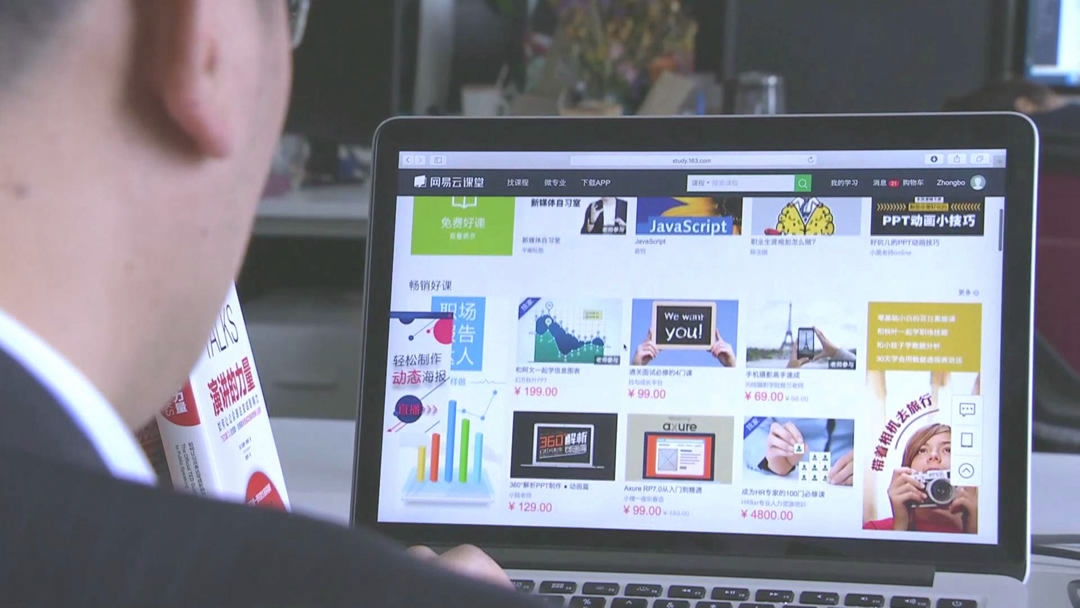
Business
16:00, 07-Jul-2017
A bite of China’s knowledge economy

By CGTN’s New Money Program
Zhang Ziwei, a worker at a creative video company, has developed a new pastime – listening to programs on online knowledge-sharing platforms.
“The content is very good,” Zhang said. “It has substance and they cover all areas like emotional intelligence, the way you talk in daily life or foreign languages, or hobbies like archaic poetry, and it’s audio-based. It offers us more options to internalize solid substances like these.”

She is among 138 million web users who are savoring China’s booming knowledge economy, which has been, over recent years, given a boost by the wider use of mobile devices and a mushrooming of knowledge-sharing sites and apps.
NetEase, a NASDAQ-listed company, is one of the front-runners in the sector. Its cloud classroom service, launched in late 2012, has developed into an online educational platform that offers academic, vocational and leisure courses to individual users, as well as corporate clients.

At the same time, audio-sharing platforms are also emerging and sharing a bigger slice of the pie. Ximalaya FM is one of them.
The audio-sharing platform has fostered a large user base with its diversity of content, which in turn attracts influential content publishers. It also offers them value-added services, such as image building, helping them cater to a bigger audience.

Recent years have also seen the rise of Q&A platforms in China. Zhihu, a Quora-like online Q&A portal is the most popular among them.
Fenda is an audio Q&A knowledge-sharing mobile app, while its sister site Zaihang allows users to request audio calls or meet in person with thousands of industry experts.
Compared with their overseas counterparts, China’s knowledge-sharing industry looks more money-savvy: apart from the more traditional approaches of advertising, paid content or service, the tipping function has been introduced as an additional source of revenue.

SITEMAP
Copyright © 2018 CGTN. Beijing ICP prepared NO.16065310-3
Copyright © 2018 CGTN. Beijing ICP prepared NO.16065310-3